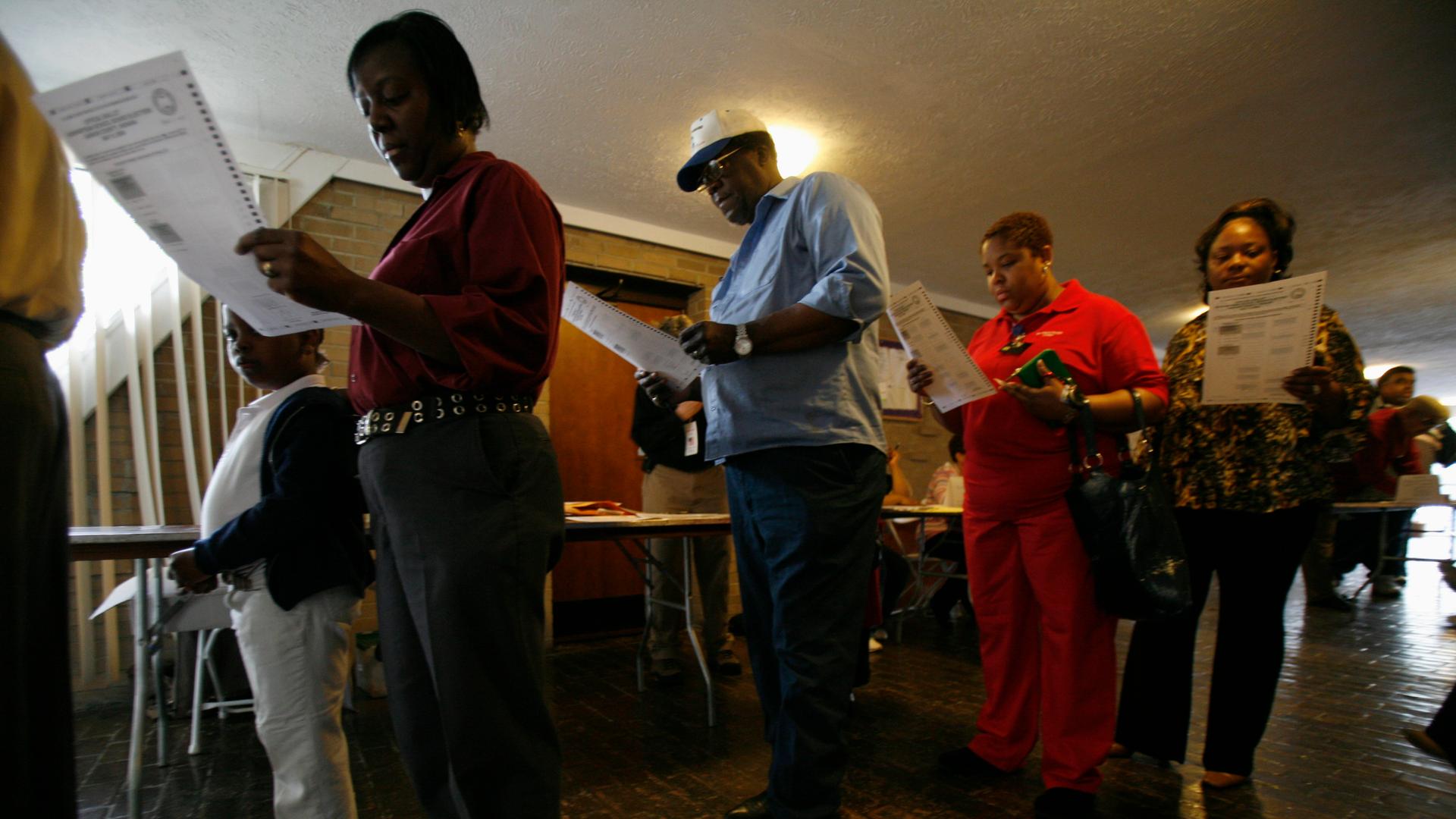Voter ID laws
Is Indiana’s strict voter ID law disenfranchising immigrant voters?
The state of Indiana was among the first in a wave of states to pass a strict photo ID law to vote. Republicans say it was necessary to prevent fraud, while Democrats call it a solution in search of a problem. The state of Indiana was among the first in a wave of states to pass a strict photo ID law to vote. Republicans say it was necessary to prevent fraud, while Democrats call it a solution in search of a problem.
We want to hear your feedback so we can keep improving our website, theworld.org. Please fill out this quick survey and let us know your thoughts (your answers will be anonymous). Thanks for your time!
U.S. Supreme Court strikes down Arizona voter citizenship provision
An Arizona law that required the state’s voters to provide proof of citizenship when registering to vote will not stand, now that the U.S. Supreme Court has ruled the bill unconstitutional. What the decision means for three other states with similar laws, as well as other voter restrictions, though, remains to be seen.
Pennsylvania awaits verdict on state’s new voter ID law
A judge this week is expected to rule on the legality of Pennsylvania’s new voter ID law. Conservatives say people are required to produce ID for many aspects of daily life, and voting should be no different. Opponents say as many as 800,000 voters don’t have proper ID. Both sides have vowed to appeal if need-be.
Some 750,000 Pennsylvania citizens may be barred from voting, under new law
A voter ID bill passed out of the Pennsylvania legislature may keep as many as 750,000 lawful voters away from the polls because they lack the specific IDs required by the new law. The majority of those 750,000 are low-income voters and minorities.
Voter ID laws a contentious issue as election season heats up
In the last four years, a half-dozen states have added laws that require voters to present a government-issued photo ID in order to cast a ballot in an election. Opponents say it disenfranchises poor and minority voters, while proponents say it’s needed to stem voter fraud.
Justice Department Blocks Texas Voter Identification Law
On Monday, the Justice Department blocked a new Texas voter identification law on the basis that the law would disproportionately affect Hispanics and that it violates the 1965 Voting Rights Act. The law would have required all Texas voters to show some form of photo ID before voting. This past December, the Justice Department blocked […]
Subscribe to The World’s Latest Edition podcast for free using your favorite podcast player:

